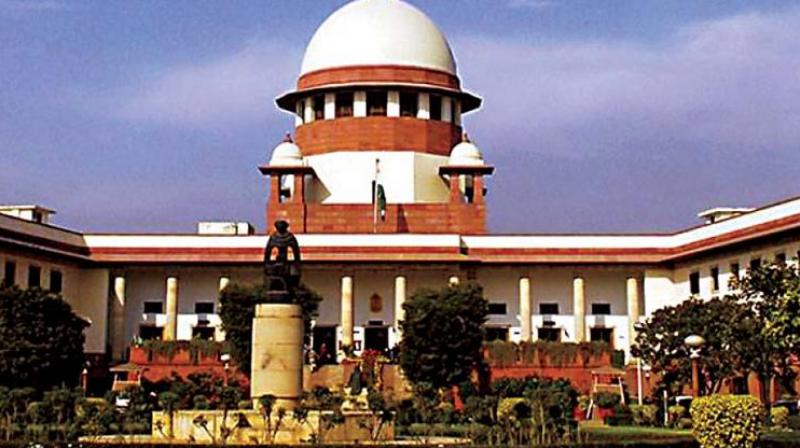Experts feel quota may not stand legal test

Hyderabad: Many legal experts said the Centre’s decision to provide reservations for economically backward classes was unconstitutional and would not survive in view of the Supreme Court’s decision in Indira Sawhney v Union of India.
When the Constitution was framed, a special provision was made to provide equal opportunity in employment and education to all citizens and was inserted in Article 16. Considering the backward classes, a special provision was inserted in the Article with a clause as Article 16 (4). This empowers the state to make a special provision for the Backward Classes who in the opinion of the state are not adequately represented in service. The Backward Class of citizens in Article 16(4) can be identified on the basis of the caste system and not on economic basis.
Recalling that reservation was done only on the basis of caste, Mr P. Vinod Kumar, former additional public prosecutor at the High Court, said, “The Backward Class referred to in Article 16(4) is the socially backward class of citizens whose educational, economic and political presence was poor. A caste by itself may constitute a class. However, in order to constitute a Backward Class, the caste concerned must be socially and politically backward, and its educational and economic backwardness must be on the account of its social backwardness.”
“They came to a decision to provide reservations to the Scheduled Castes and Tribes for their socio-economic and political backwardness and social discrimination. To facilitate them on par with the people of other castes, quota-based reservations were provided as affirmative action. Now the Union Cabinet’s decision to provide reservations to EBC’s is unconstitutional. There must be a social stigma for reservations,” he said.
Mr K. Ramakrishna Reddy, former Advocate General of Telangana state, said that in Indira Sawhney v Union of India, the Supreme Court put 50 per cent cap on reservations. This is not exclusively for other castes, but for the talented and efficient persons.
A 10 per cent reservation proposed would be unconstitutional and wrong, Mr Ramakrishna Reddy said.
The P.V. Narasimha Rao government had tried to provide EBC reservations but it was struck down by the apex court. If the BJP-led NDA government chooses to make a Constitutional amendment to provide such reservations, there will be a demand to increase reservations based on religion, Mr Ramakrishna Reddy said.
While reservations to EBCs is still at a proposal stage, Mr Jelli Kankaiah, senior advocate and former government pleader, said it would affect BC reservations.
He said, “The announcement of reservations to EBCs will indirectly affect the reservations to the Backward Class. The Union government might have forgotten the Supreme Court’s contention that the reservations beyond 50 per cent are unconstitutional.”
He said that when the then Prime Minister V.P Singh’s government took a decision to enhance the reservations, it was set aside by the apex court. Mr Kankaiah said, “If the NDA government wants to provide reservations to the EBCs, it must be within the 50 per cent limit. Ultimately it affects the reservation percentage of the Backward Classes, whereas the Constitution guarantees reservation to SC and STs based on their population.”
The weaker sections mentioned in Article 46 are a genus of which Backward Class of citizens mentioned in Article 16(4) constitute a species.
Article 16(4) refers to Backward Classes which are a part of the weaker sections of society and it is only for the backward classes who are not adequately represented in the services, and not for all the weaker sections that the reservations in services are provided under Article 16(4), Mr Kankaiah said.
Presenting a different opinion, Mr S. Ramachandra Rao, former Advocate General of erstwhile AP, said that the Constitution’s basic structure was that every citizen had equal rights in all sectors. Because of the inequality, some sections of people were provided with reservations in education and employment for a certain period.
“Nowadays, several people think that reservation is a constitutional right. There are several people among the forward classes, who are economically poor. The Centre’s decision is laudable, but it is not valid unless an amendment to the Constitution is made to enhance the reservations,” Mr Rao said.

